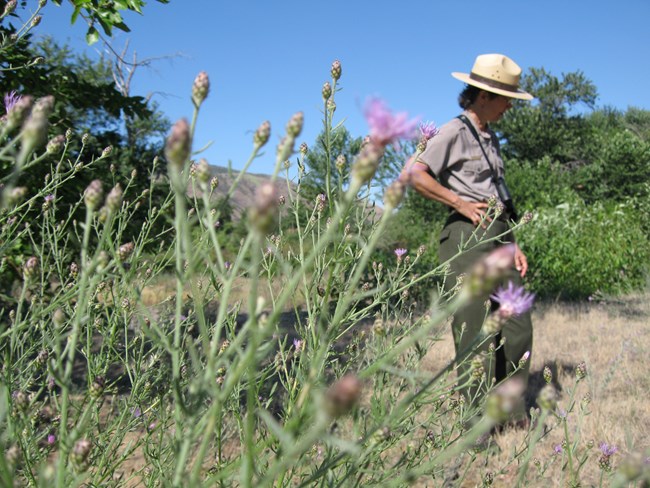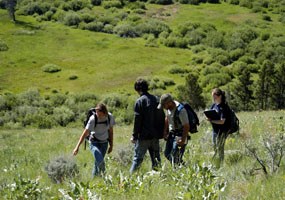
NSP Photo Invasions of exotic species represent one of the most serious threats to natural ecosystem integrity. Biological invasions are occurring at accelerated rates in nearly every major ecosystem. Invasive nonnative plant species are of concern given their ability to quickly expand into new areas, compete with and exclude native species, and alter ecosystem processes. At Big Hole National Battlefield, invasive plants, most of which are nonnative species, pose one of the greatest threats to natural and cultural resources and have been identified as a high priority management responsibility. "Weeds" can be defined in many ways. To the average person, the term "weed" refers to: · A plant growing where it is not wanted, · A plant out of place, · Plants that are a nuisance, unsightly,or harmful, and/or · A plant whose virtues have yet to be discovered. Although there is truth to all these definitions, these statements minimize the impact of weeds on humans and the environment and disregard some fundamental biological features of weeds that set them apart from most other plants. Weeds are what they are because they have certain characteristics that make them different from other plants. 
NPS photo The following is a list of “weedy characteristics,” many of which are possessed by the worst weeds in the world.
Park staff are making a concerted effort to locate, identify, and treat these weeds with proven Integrated Pest Management procedures. This is important to guarantee that federally and state listed noxious weeds and other nonnative species do not gain a foothold and then replace the native plant communities found here. |
Last updated: January 26, 2020
